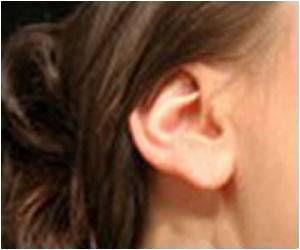University of Iowa scientists have discovered a new role for a protein that is mutated in Usher syndrome, one of the most common forms of deaf-blindness in humans.

Hearing starts with the transmission of sound by inner hair cells in the ear. Sound waves cause movement of special structures called stereocilia on the tips of the hair cells. Harmonin is thought to mediate this movement, which then activates the cells and initiates transmission of sound information as electrical and chemical signals to the brain.
"Most of the research until now has concentrated on the input end of the inner hair cells where the sound waves produce motion of the stereocilia," said Amy Lee, Ph.D., senior study author and UI associate professor in the Departments of Molecular Physiology and Biophysics, Otolaryngology-Head and Neck Surgery, and Neurology. "Now we have found a new role for harmonin at the opposite end of these sound-sensing inner hair cells where it appears to control the signal output of the cell."
Lee and colleagues, including UI postdoctoral fellows Frederick Gregory, Ph.D., and Keith Bryan, Ph.D., found that harmonin is important for regulating the number of calcium channels present at the sound-transmitting synapse of inner hair cells.
Studies from other labs have shown that too few or too many calcium channels at the hair cell synapse cause deafness in mice. This means factors that control how many channels are available are likely to be important for normal hearing.
"Harmonin appears to precisely control how many channels are available," Lee said. "What we think is happening in Usher syndrome where the harmonin protein is mutated is that there are too many calcium channels available, which causes abnormal signaling at the synapses.
Advertisement
Harmonin is also expressed in the retina -- the light-sensitive tissue in the eye -- which is affected in Usher syndrome, and there are calcium channels in the photoreceptor cells of the retina. It is not known how the harmonin mutation affects the retina and how it might contribute to blindness in Usher syndrome, but that is another area of research Lee's team hopes to investigate.
Advertisement
Source-Eurekalert










